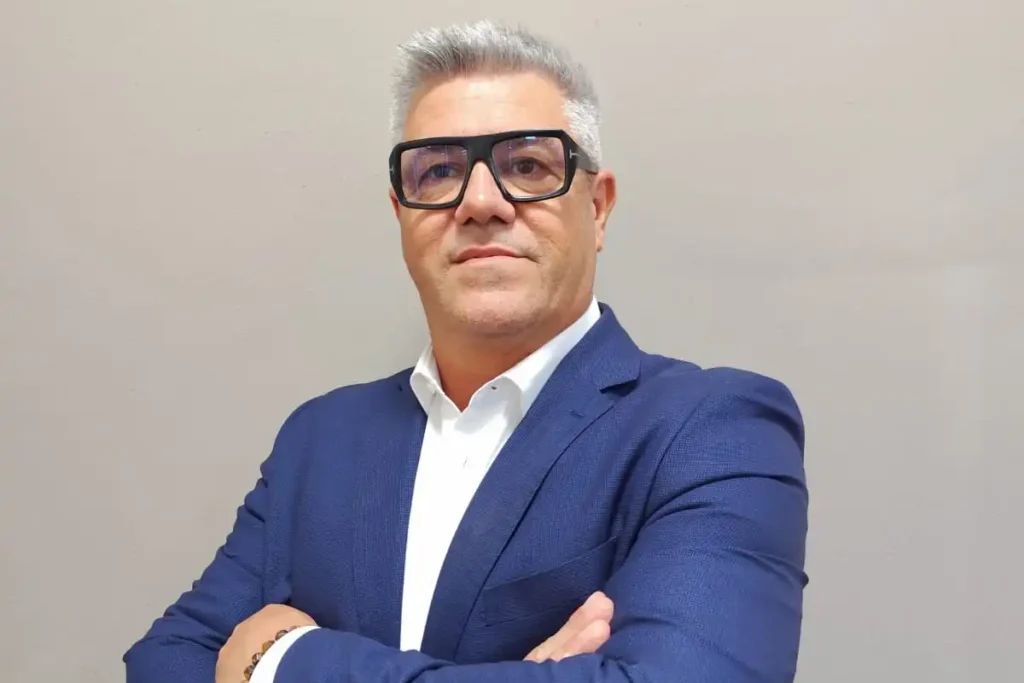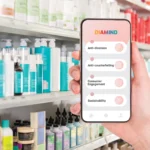With a foundation built on passion for trichology and a sharp eye on innovation, COSM.O has evolved from a behind-the-scenes manufacturer to a forward-thinking player in the global beauty industry. We sat down with CEO Ferdinando Odorici to explore the company’s journey, its full-service model, and how it’s staying ahead in a rapidly changing landscape where sustainability, research, and adaptability are key.
What have been the key milestones in the development of COSM.O, from its beginnings to your current presence in international markets?
Our passion for the trichological field and the professional beauty world has always been part of our DNA. Initially, we focused primarily on private label production, responding to market demands. This naturally led us to develop our first brand, Krom. From there, a significant growth journey began: the company evolved not only in terms of products and services offered but also with an expanded production team and specialised staff. We’ve consistently invested in both our facilities and equipment to become more structured and ready to seize new opportunities.
You manage both your own brand and private label activities. How do you balance these two sides, and what advantages does the full-service model offer today?
We manage private label operations alongside our own brand in a well-organised way, distributing responsibilities across departments and teams. This operational separation allows us to maintain high efficiency and quality on both fronts. There’s a strong synergy between the two: private label work keeps us in constant touch with market needs, while brand development drives innovation. Often, a new idea developed from our brand is then offered to private label clients, and vice versa. This ongoing exchange gives us a significant competitive edge, allowing us to stay dynamic, up-to-date, and in tune with industry demands.
What role does R&D play in your company, and how does it help maintain high quality and competitiveness in COSM.O’s offerings?
Our Research & Development department thrives on continuous collaboration among all stakeholders: raw material and packaging suppliers, clients, industry professionals, and technical experts who support us in the product testing phase. This constant dialogue allows us not only to refine our formulas but also to benchmark against other major market players. Some projects stem from specific private label requests, while others are born from our internal insights and later offered to partners. Our latest major innovation is a full skincare product line, which we’ll soon launch under both our brand and as a private label.
Sustainability and regulations are increasingly central in the global beauty industry. How do you help your clients address these challenges across different markets?
Sustainability is a core value for us, both in our products and company structure. We carefully choose materials: recyclable packaging, mono-material solutions, and eco-friendly alternatives to traditional ingredients wherever possible. On the structural side, we’ve made real investments: solar panels to reduce our energy footprint, charging stations for electric vehicles, and a plastic-free employee policy, eliminating single-use plastics and installing water dispensers.
What are the main trends in formulations and packaging for professional haircare? How are you preparing to respond?
Current trends in the professional sector are strongly oriented toward sustainability, in both packaging and products. As mentioned earlier, it’s something we care deeply about and are actively working on. We’re investing in alternative ingredients and greener solutions, always maintaining top professional performance, which for us is non-negotiable. Our goal is to continue delivering excellent products that meet professional needs while also addressing the growing demand for sustainability.
Given the current uncertainty around tariffs and global trade dynamics, are you seeing increased interest in private label from brands looking to diversify or enter new markets?
The international market is strategic for us, both for private label clients and the distribution of our brand, particularly in the United States. While tariffs remain uncertain, they will likely impact raw material costs and may cause delivery delays. For this reason, we’ve been exploring the idea of opening a production facility in the U.S. over the past couple of years, evaluating suitable locations and qualified staff. However, it’s still hard to make firm predictions, as much will depend on how international trade dynamics evolve.





